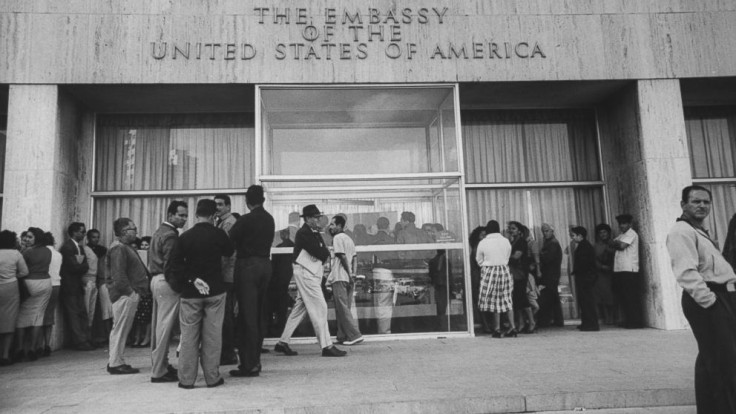US Eager To Open Cuba Embassy Before April, Report Says

The U.S. is eager to open its first official embassy in Havana by April, given President Barack Obama’s announcement of the historic shift in American-Cuban relations. However, Cuba’s demand to first be removed from the U.S. State Sponsors of Terrorism list could revive Cold War sentiments and stall progress on restoring diplomatic ties, according to Reuters.
The U.S. State Department is in the process of reviewing the communist nation’s listing as a state sponsor of terrorism. Although White House officials are attempting to expedite the removal process, it could take until June or longer, Reuters reported, citing two U.S. officials with direct knowledge of the matter.
The U.S. is pushing to have the embassy open in April, when Obama will meet Cuban President Raul Castro for the first time since 2013 before a regional summit in Panama, Reuters said.
Cuban officials made clear during the first round of talks in January that the country must be removed from the terrorism list as a condition of renewing diplomacy with the U.S. “We cannot conceive of re-establishing diplomatic relations while Cuba continues to be included on the list,” a senior official with Cuba’s foreign ministry told Reuters last month, speaking on condition of anonymity.
Cuba has been listed as a sponsor of terrorism by the State Department since 1982. The island nation has been a safe haven for members of the Revolutionary Forces of Colombia, or FARC, a rebel group that has been in sustained violent conflict with successive Colombian governments since the 1960s.
The designation as a state sponsor of terrorism carries with it economic sanctions and fines for companies that do business with countries that bear the label. French bank BNP Paribas SA paid a record $8.9 billion penalty last year for doing business with Cuba, Iran and Sudan, Reuters reported.
Cuba also wants the U.S. to cut back support for Cuban dissidents. However, the Obama administration has said it will continue supporting dissidents and democracy-promotion programs on the island. “I do not expect the changes to bring about changes in Cuban society overnight,” Obama said in December, while announcing the sea change in U.S. policy on Cuba. “But I believe that with a policy of engagement, we can more effectively stand for our values and help the Cuban people help themselves as we move into the 21st century.”
Castro has praised the policy shift in U.S.-Cuba relations but demanded the U.S. respect Cuba’s communist rule, according to Reuters. “In the same way that we have never demanded that the United States change its political system, we will demand respect for ours,” Castro reportedly told the National Assembly in Havana Dec. 20.
© Copyright IBTimes 2024. All rights reserved.











